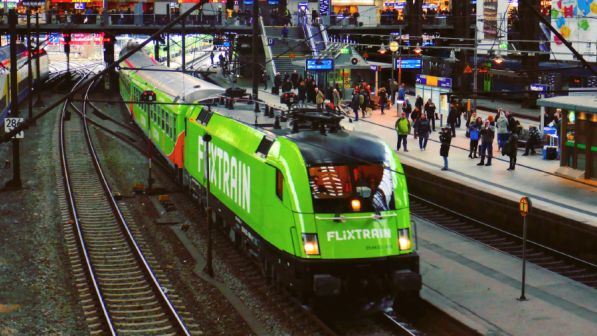The move follows concerns from FlixTrain and others including the Alliance of Passenger Rail New Entrants (AllRail) and Mofair, which represents private German rail operators, that the Covid-19 pandemic will provide an opportunity for state-owned incumbents such as German Rail (DB) to solidify their position in the market.
Discussions are currently underway into a rescue package for DB in the wake of the coronavirus pandemic, with the German federal government, DB, and the Railway and Transport Union (EVG) forming a ‘railway alliance’ in May to agree such a package.
Schwämmlein says the discussions are particularly worrying, given that DB was promised €11bn in state aid in September last year, along with an extension to its debt limit to €30bn.
“Should there be a blanket acceptance of the German federal government’s plan, we clearly envisage legal measures to level - or actually maintain - the playing field,” Schwämmlein says. “DB seems to be incessantly using crisis situations to strengthen its competitive advantage. Such a pattern could set a dangerous precedent in the European Union (EU), turning back the clock on decades-long efforts and preventing other private rail services from launching competitive offers across Europe in the foreseeable future.”
FlixTrain is aiming to provide services to more than 30 cities along Germany’s seven main corridors by next year, while also expanding to France, Sweden and Italy. However, Schwämmlein says this could be scuppered by the proposed capital increase in DB.
In his letter to Vestager, Schwämmlein outlined three proposals to preserve competition in the German market. This includes:
- making all rail services bookable via DB’s sales channels
- reducing track access charges for non-state operators, and
- accommodating longer planning periods for tracks and service infrastructure.
Schwämmlein adds that DB’s www.bahn.de sales channel constitutes “monopolistic critical infrastructure,” and the word bahn in the web address meant it was synonymous with the entire rail market to passengers.
“Giving the impression that it constitutes a general overview of all available offers on the market, it is the best-known and most frequently used rail booking platform in Germany with over 95% share in the domestic business to consumer market,” Schwämmlein says. “Therefore, these are indispensable resources that no commercial operator could easily substitute with a sales platform of their own.”
FlixTrain relaunched services on the Berlin - Cologne and Cologne - Hamburg routes on July 23 after putting all three of its routes on hold on March 20. The Cologne - Berlin line will continue to be operated by Stuttgart-based operator SVG, while the Cologne - Hamburg connection will be operated by Hersbruck-based operator IGE after FlixTrain’s partnership with RDG subsidiary BahnTouristikExpress (BTE) ended in mid-April.
DB fleet order
Concerns about the use of public finance to subsidise commercial operation were echoed by AllRail and Mofair, who said DB’s purchase of 30 new ICE high-speed trains from Siemens were being financed under “questionable circumstances.”
The bodies says that with the €11bn in funding provided last year and the proposed bail out, which could amount to €5bn, has made it easier for the national operator to finance the new fleet for its commercial long-distance subsidiary.
“How can new privately funded long distance competitors - which have to finance their trains themselves - compete against DB if it is gifted new ICE trains by the government?” says AllRail secretary general, Mr Nick Brooks. “This is a major disincentive to all future private investment - it is impossible to compete against the scale and volume of such public funding.”
“Market opening in long distance rail is needed more than ever,” says Mofair president, Mr Christian Schreyer. “Not only is it the most effective solution in order to help the environment and the EU Green Deal, but it is also necessary for future generations.”

